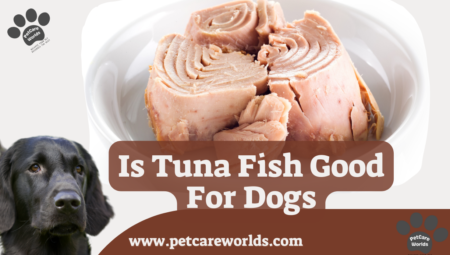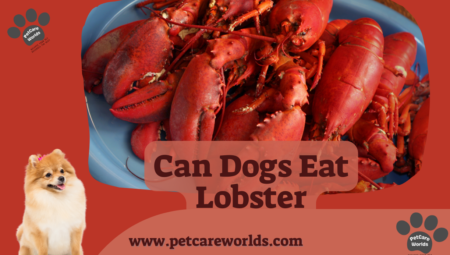What Do Box Turtles Eat – Have you ever wondered what fuels the slow-and-steady lifestyle of a box turtle? These charming creatures, with their colorful shells and curious personalities, aren’t just picky eaters—they’re dietary connoisseurs! From crunching on fresh greens to savoring juicy insects, their meals are a fascinating mix of nature’s best. But here’s the catch: what a box turtle eats isn’t just about taste—it’s about survival, growth, and health. So, what’s on their menu? Let’s dive into the culinary world of box turtles and uncover the secrets to keeping them happy and thriving.
What Do Box Turtles Eat – Understanding Box Turtles’ Diet
Box turtles are fascinating eaters. They are omnivores, meaning they eat both plants and animals. Their diet depends on their age, species, and environment. What Do Box Turtles Eat
- Young turtles prefer more protein, like insects.
- Adult turtles lean towards plants and fruits.
This shift ensures they get the right nutrients as they grow. Let’s explore what makes up their unique meals! What Do Box Turtles Eat
Omnivorous Nature of Box Turtles
Box turtles eat a mix of plants and animals. Their omnivorous nature helps them survive in various environments. They forage for:
- Fruits like berries and apples.
- Vegetables such as leafy greens and squash.
- Insects including worms, beetles, and crickets.
This diverse diet gives them the energy and nutrients they need. What Do Box Turtles Eat
Age and Diet Relationship
A box turtle’s age impacts its diet. What Do Box Turtles Eat
- Hatchlings and juveniles eat mostly protein. They need it to grow strong shells and muscles.
- Adults prefer plants, making up about 70% of their diet. What Do Box Turtles Eat
Providing the right food at each stage keeps them healthy and balanced.
Essential Components of a Box Turtle’s Diet
Plant-Based Foods
Box turtles love to munch on plants. These are key to their well-rounded diet.
- Dark leafy greens like collard greens, kale, and dandelion leaves provide essential vitamins.
- Vegetables such as squash, carrots, and bell peppers add fiber and nutrients.
- Fruits like apples, strawberries, and papaya give them a sweet treat full of vitamins.
These plant-based foods keep turtles strong and energized. What Do Box Turtles Eat
Protein Sources
Protein is vital, especially for younger turtles. It helps in growth and development.
- Insects like crickets, worms, and beetles offer plenty of protein.
- Box turtles also enjoy snails, which provide both protein and calcium.
Protein helps maintain muscle health and energy levels. What Do Box Turtles Eat
Animal-Based Products
In addition to insects, box turtles can benefit from animal-based products.
- Cooked chicken or lean meat can be a good protein source.
- Some owners also feed them high-quality pet food designed for reptiles.
These items should be given sparingly, as too much meat can upset their balance.
Balancing Calcium and Phosphorus
A balanced ratio of calcium and phosphorus is crucial for box turtles. Too much or too little of either can cause health problems, especially with their bones and shells. The ideal ratio is about 2:1, with calcium being higher than phosphorus. What Do Box Turtles Eat
Importance of the Ratio
The calcium-to-phosphorus ratio affects bone growth and shell health. Too much phosphorus can block calcium absorption, leading to metabolic bone disease. Maintaining the correct balance ensures strong, healthy bones and a durable shell.
Foods to Avoid or Limit
Some foods can upset the calcium-phosphorus balance.
- Fruits like bananas and grapes have high phosphorus levels. These should be given in moderation.
- Certain vegetables, like spinach, are high in oxalates, which bind calcium and reduce its availability.
- Processed meats and high-phosphorus insects (like some worms) should be fed sparingly.
By monitoring these foods, you can help your box turtle stay healthy and strong.

Recommended Foods for Box Turtles
Best Foods for Daily Feeding
For a healthy diet, these foods should be offered regularly:
- Dark leafy greens like kale and dandelion leaves
- Vegetables such as squash, carrots, and bell peppers
- Fruits like apples, strawberries, and papaya
- Protein sources like crickets, worms, and snails
These foods provide essential nutrients for box turtles‘ daily needs.
Foods for Occasional Treats
Some foods are best used as treats. Offer them occasionally:
- Berries such as blueberries and raspberries
- Melons like watermelon and cantaloupe
- Fruits like grapes and bananas (in small amounts)
These treats should be given sparingly to maintain a balanced diet.
Mineral and Vitamin Supplements
Indoor vs. Outdoor Box Turtles
Indoor turtles may need vitamin D3 and calcium supplements since they don’t get enough sunlight. Outdoor turtles can produce their own vitamin D3 from the sun.
Frequency of Supplementation
- Indoor turtles might need supplements 2-3 times a week.
- Outdoor turtles usually get all the vitamins they need naturally, but a supplement once a week can be helpful if their diet is lacking.
Always consult a vet to make sure your turtle gets the right balance.
Feeding Tips for Box Turtle Owners
Safe Food Preparation
Before feeding your turtle, make sure to:
- Wash all fruits and vegetables to remove pesticides.
- Chop food into small pieces to make it easier for your turtle to eat.
Proper food prep ensures safety and digestibility.
Avoiding Harmful Foods
Some foods can harm box turtles. Avoid:
- Citrus fruits (like oranges and lemons)
- Avocado, which is toxic to many reptiles
- Processed foods or human junk food
By staying clear of these, you keep your turtle safe and healthy.

What Do Box Turtles Eat?
| Food Type | Recommended Foods | Notes |
|---|---|---|
| Plant-Based Foods | Dark leafy greens, vegetables, fruits like apples, berries, papaya | Essential for daily nutrition. Avoid high-phosphorus fruits in excess. |
| Protein Sources | Insects like crickets, worms, snails, beetles | Best for younger turtles. |
| Animal-Based Products | Cooked chicken, high-quality reptile pet food | Offer sparingly to avoid nutrient imbalance. |
| Occasional Treats | Berries (blueberries, raspberries), melon (watermelon, cantaloupe), grapes and bananas (in moderation) | Ideal for occasional feeding to keep the diet balanced. |
Box turtles thrive on a balanced diet of plants and protein, ensuring they stay strong and healthy throughout their lives.
What Do Box Turtles Eat Frequently Asked Questions
1. Can box turtles eat fruit every day?
While box turtles enjoy fruit, it should only be offered occasionally. Some fruits, like bananas and grapes, are high in phosphorus, so they can upset the calcium-to-phosphorus balance if fed too often.
2. What insects can box turtles eat?
Box turtles can eat a variety of insects, including crickets, worms, beetles, and snails. These provide essential protein for growth and energy, especially for younger turtles.
3. Can box turtles eat vegetables?
Yes! Box turtles love vegetables like squash, carrots, and leafy greens. These are packed with fiber and vitamins, making them an important part of their daily diet.
4. Are there any foods box turtles should avoid?
Yes, there are several foods that can be harmful to box turtles, including citrus fruits and avocado. These can be toxic to them and should never be fed.
5. Do box turtles need vitamin supplements?
Indoor box turtles may need calcium and vitamin D3 supplements since they don’t get enough natural sunlight. Outdoor turtles usually get these vitamins from sunlight but might still benefit from supplements during certain times of the year.
6. How often should I feed my box turtle?
Young box turtles should be fed daily, while adults can be fed every other day. Always offer fresh food and remove any uneaten portions to keep their habitat clean.
Conclusion
What do box turtles eat? A balanced diet of plants, insects, and occasional treats keeps them healthy. Ensure calcium-phosphorus balance for strong shells.





